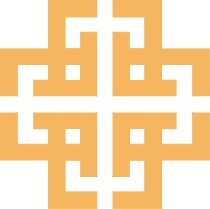Learning and Vulnerability: Part 2
Knowledge and identity
As professionals we have expert knowledge for which we are respected and paid money for. Knowledge is a fence behind which the knowledge workers feel confident.
Therefore, the idea of being bad at something new for weeks or months can be scary (though the most people are not even conscious about this fear).
Being knowledgeable is a big part of identity of knowledge workers, so asking “I-don’t-know-what-you’re-talking-about” questions, needing help and guidance is tough.
The ‘secret’ is to allow yourself to be vulnerable and to accept the beginner status. This helps to acquire new skills and knowledge faster, which is crucial in todays world.
What is vulnerability
I wanted to learn more about vulnerability and was recommended to look at the work of Brené Brown. She is a researcher who spent two decades studying courage, vulnerability, shame and empathy.
I learned couple important points from her famous TED talk about “The power of vulnerability”. Vulnerability is the core of shame and fear - but it is also the origin of joy, creativity and belonging.
In order to be a successful lifelong learner it is essential to embrace vulnerability, to accept being imperfect and to be kind to yourself.
Authenticity makes learning more relaxed and intentional, because we are more honest with ourselves about:
what we do and do not know
what we want to know
why we need to know it
In recent interview Brené Brown discusses how during the COVID professionals have to do many things for the first time (remote work, working with kids at home, homeschooling, video conferencing etc.) and really struggle with it:
Most adults get to a place in our lives where we don't want to do anything that we're not already good at doing, because we don't want to be that vulnerable and we don't want to suck (Brene Brown)
However, experience of learning new things and acting outside of the comfort zone are essential for growth:
that muscle that we use when we do first things is the life blood. It's the juice. It's the secret sauce to life (Brene Brown)
Accepting novice status when learning
I have to admit that it does sound as a great advice: be vulnerable and accept the beginner state in order to become a better learner.
Maybe it is ‘better’ to start as a fool than to pretend being an expert, but how to do it? It is easier said than done.
How can you feel more confident and get into relaxed, learning mindset? I gathered couple tips & tricks on how to handle being novice when starting something new:
Follow and cultivate your curiosity, which is also a source of energy. If you harness your curiosity you are more likely to completely immerse into learning, get into flow state and be powered by the process of learning. This blocks self-consciousness and prevents self-criticism.
Aim consistency and add some quick, small wins to boost the motivation at the beginning of the ‘clueless curve’.
Practice a lot and speed up the learning process in order to reduce time being a novice.
Focus on long-term benefits of learning and positive impact that it will have on your future. Having a big picture of why you are learning something new - makes short term pain irrelevant.
